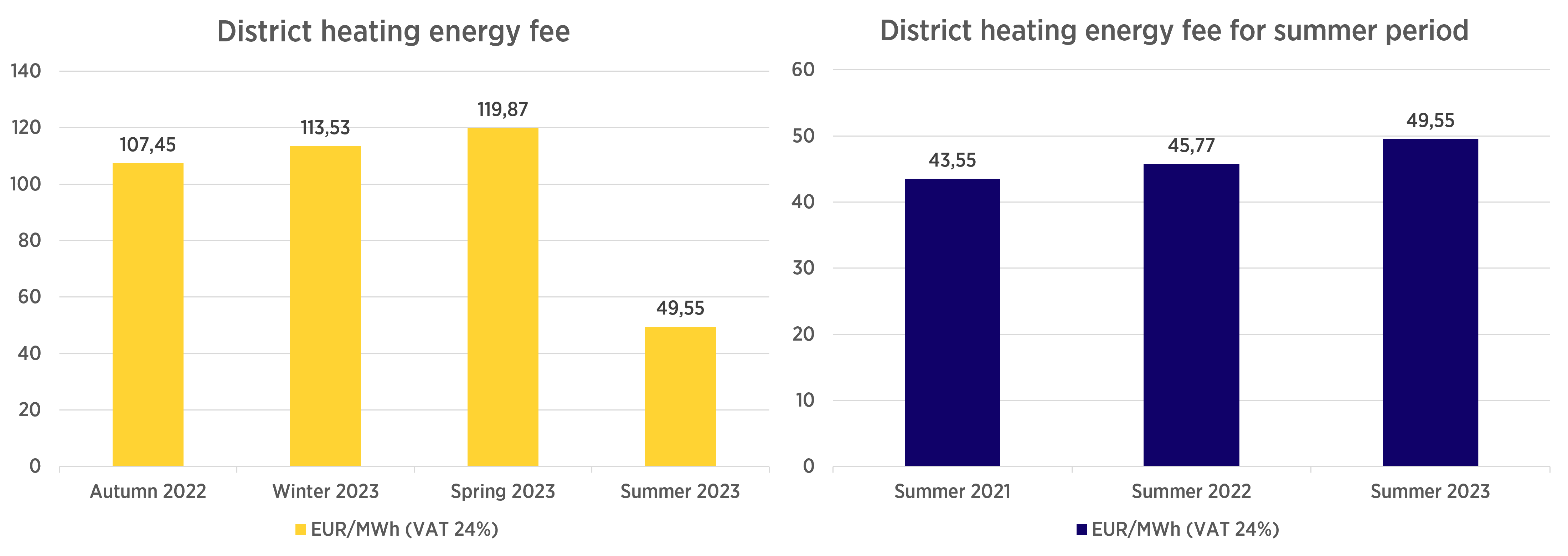
A new district heating price period to begin – changes to energy fees
The summer price period concerning district heating will start at the beginning of May, as the spring price period ends. The district heating fees of a typical apartment constructed in the 2000s will be reduced due to a lower energy fee by approximately EUR 90 per month when compared to the spring period.
When compared to last summer period, the overall price of district heating will rise by approximately 4%. For a typical apartment, this means an additional cost of approximately EUR 1 per month. The change is caused by the energy fee in the summer period rising from EUR 45.77 to EUR 49.55 per megawatt-hour. The summer period is the longest price period of district heating, but also the cheapest, as less heat energy is required in the summer than in other seasons. The period will start on 1 May and last five months until the end of September.
The price list for the fixed part of district heating, in other words water flow fees, will remain unchanged for the whole of 2023. We are planning to renew our district heating product in 2024, which means that we will not be checking all our customers’ water flow fees this year.

“Prices have risen in almost all sectors along with the general cost level. The price changes of district heating in the summer period are in line with general inflation and are caused by the prices of fuel and emission allowances, which have remained high. We have tried to keep the price increases moderate and we hope that this will help our customers while the cost of living is on the rise,” says Anu-Elina Hintsa, SVP, Sales and Customer Service at Helen.
The price of district heating consists of a fixed water flow fee and seasonal energy fee. The water flow fee covers the fixed costs of district heating production and transmission and has remained unchanged since the end of 2019. The energy fee is based on energy consumption and updated four times a year: at the beginning of January, March, May, and October. The energy fee is affected by the prices of raw materials, emission allowances, and electricity as well as by energy taxes.
We are moving towards carbon-neutral energy production
District heating is on its way to becoming a carbon-neutral form of heating. Homes in Helsinki are increasingly being heated with sustainable forms of energy production, for example by utilising biomass and waste and environmental heat.
The transition to a sustainable energy system improves our self-sufficiency and reduces dependence on imported raw materials and related price fluctuations. At the same time, it balances the price pressure on district heating.
The price of the district heating autumn period will be announced by the end of August.